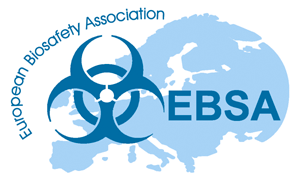Speakers at Pre conference course E. How to convince and influence for biosafety and security (1 day)
Pre conference course E. How to convince and influence for biosafety and security (1 day)
About the speakers
-

Anton de Paiva
Academic Education and Degrees
Biochemistry BSc (hons) from University College London
PhD in Molecular Neurobiology from Imperial College LondonPresent Professional Position
Head of Occupational Health and Safety for London School of Hygiene and Tropical Medicine (LSHTM)
Special remarks
I obtained my Biochemistry BSc (hons) from University College London followed by a PhD in Molecular Neurobiology from Imperial College London. After a 7-year period conducting post-doctoral research on botulinum neurotoxin I left my bench work behind and in 1999, became the Biological Safety Officer at Imperial. In 2009 my remit expanded and I became the Deputy Safety Director, also at Imperial.
In 2018, I left Imperial to take up the role of Head of Health and Safety at the London School of Hygiene and Tropical Medicine. My responsibilities now include Occupational Health and Safety for LSHTM in London as well as at two large units in The Gambia and Uganda.
Other professional activities include having been a European Biosafety Association (EBSA) Council member 2008-2010 and EBSA President 2012-2013. I have also been a member of EBSA's Conference Planning Working Group (CPWG) since 2007 and Chair of the CPWG 2010-2012. I have also been a member of the Institute of Safety in Technology and Research's working group on the UK professional standard for Biosafety competence since 2007 and acted act as co-ordinator for the scheme until 2011.
-

Job Groeneweg
Academic Education and Degrees
Graduated cum laude in cognitive psychology in 1985 at Leiden University
PhD research on identifying the systemic factors that contribute to incidentsPresent Professional Position
Director and Professor of ‘Safety in Health Care’ at Delft University of Technology
Human factor and risk perception specialist at Leiden UniversitySpecial Remarks
Jop Groeneweg is professor of ‘Safety in Health Care’ at Delft University of Technology. The focus of this chair is on quantifying and modelling the factors contributing to a Just culture and its relation with the organisational learning capabilities and the prevention incidents.
He is also a human factor and risk perception specialist at Leiden University with more than 35 years’ experience in a range of industries. He started his career investigating causes and backgrounds of marine accidents.
In the mid-eighties, his field of interest moved to the petrochemical industry where he was involved in a project aimed at giving the Royal Dutch Shell plc safety performance new momentum. A research team including Manchester and Aberdeen Universities together with Shell developed a range of tools were that are now main stream in the industry (e.g. Tripod, the Hearts & Minds tools, the Life-Saving Rules). In his view, safety is the end result of optimally managed processes. To improve further, organisations should not only focus on ’safety issues’ but in general operating practices.
More recently he was involved in a project together with the Dutch Research Institute TNO (where he is a Senior Researcher) aimed at developing a process approach to Learning from Incidents. Many organisations could prevent so-called recurrent accidents if they would effectively implement the lessons from incidents. This is not a matter of buying a better investigation method but requires management of the process staring with reporting the incident to measuring the effect of the interventions.
His latest research involves transferring knowledge for the petrochemical domain into health care and vice versa. As an advisor, he helps organisations to identify the strong and weak points in the way they manage safety and helps them to structure their efforts in a more efficient and effective way to improve safety.
